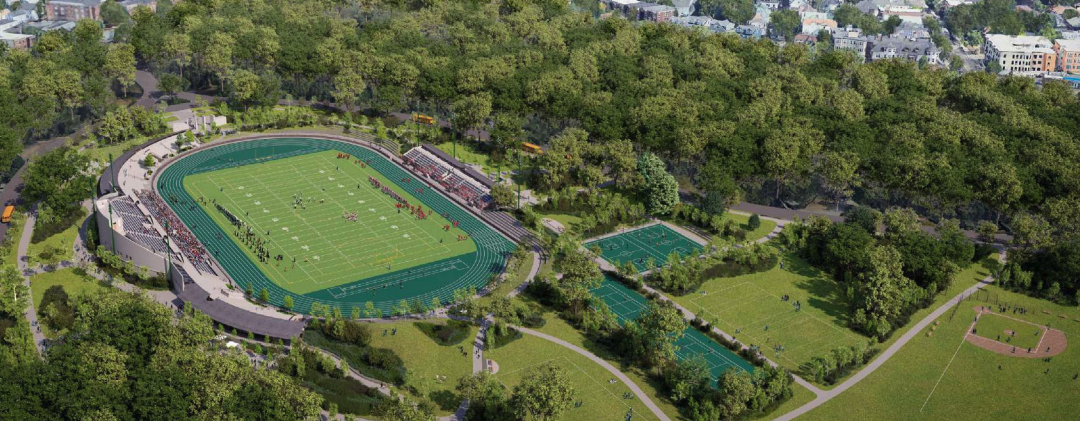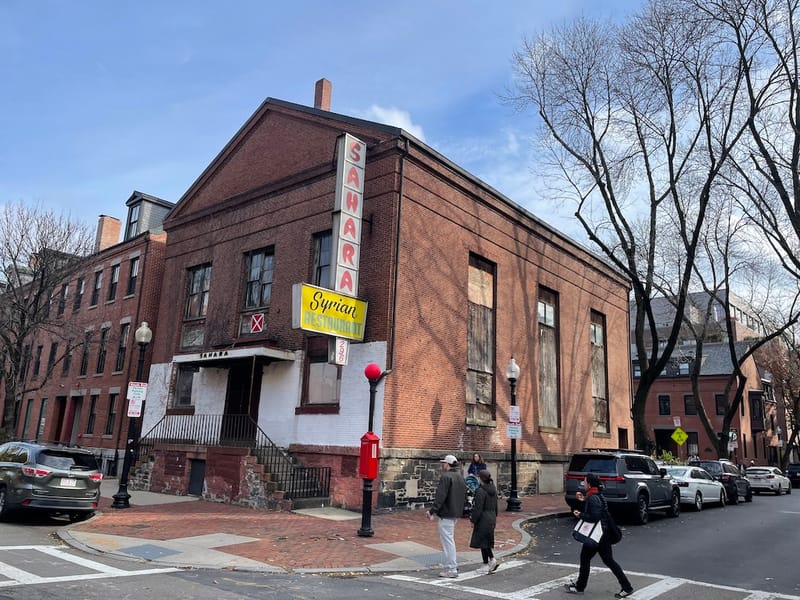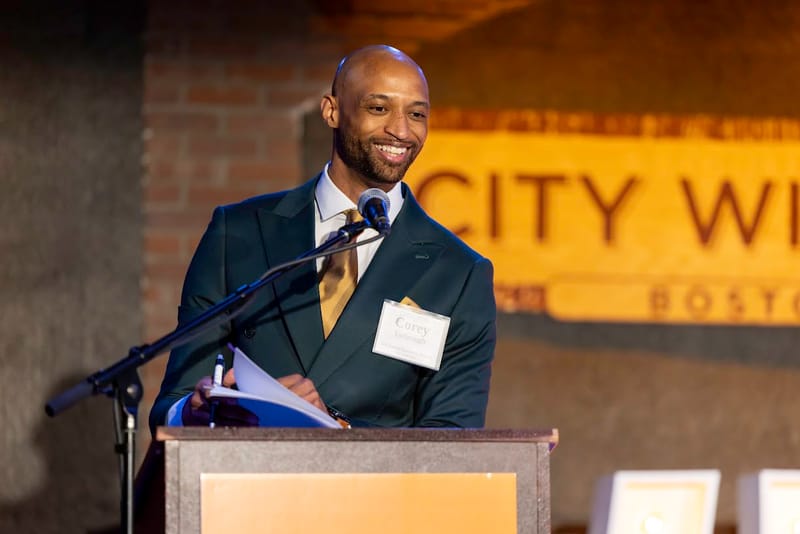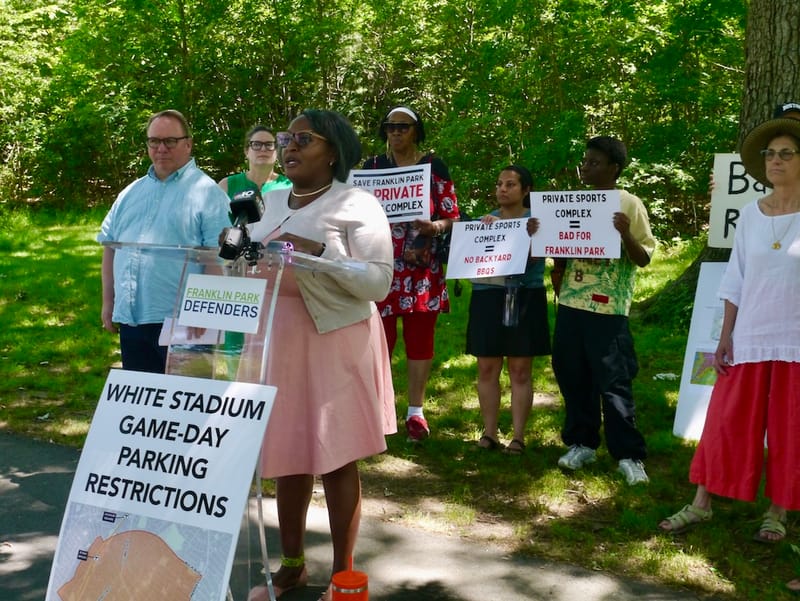Opponents put forth alternative, fully public proposal for White Stadium
Community members and opponents of the city’s plans for White Stadium presented their own design that they claim will be more affordable and centered on the community.
By Nicole Abrams
Community members and opponents of the city’s plans for White Stadium presented their own design that they claim will be more affordable and centered on the community.
At a press conference on Tuesday morning, members of the Emerald Necklace Conservancy, architects from the Landing Studio architecture design practice, and the Franklin Park Defenders presented an alternative design for White Stadium that is fully public and does not include plans to hold a professional women’s soccer team.
This new plan is expected to cost $64.6 million, a smaller figure that these advocates say is much less than the amount the city is expected to pay for the Boston Unity Soccer Partners (BUSP) proposal. Officials in the administration of Mayor Michelle Wu have said the city's share of the cost of the new stadium will be $91 million, but have acknowledged their estimates that costs could go as high as $172 million.
Karen Maudey-Brodek, the president of the Emerald Necklace Conservancy, emphasized that over 30 organizations had voiced their support for a fully public renovation of White Stadium, including the NAACP Boston Branch.
“It is our mission to protect and support the public parks for future generations, even when it's hard,” said Maudey-Brodek.
The counter proposal comes amidst a legal battle in which opponents of the city’s and BUSP’s plans for White Stadium argue that the plan violates the rights of Boston residents under Article 97 of the Massachusetts Constitution, which “establishes a right to a clean environment including its natural, scenic, historical, and aesthetic qualities for the citizens of the Commonwealth.”
Judge Matthew Nestor ruled in favor of the city, saying that the property was not protected by Article 97. The Franklin Park Defenders plan to appeal the decision.
The alternative White Stadium plan was presented by Dan Adams, a founding designer at Landing Studio, who worked on the designs for the alternative plan for White Stadium.
During the press conference, Adams emphasized that the goal was to create a design that is more open to the public.
He said of this alternative plan, “a lot of it had to do with how to make as sort of open, accessible and inclusive of a landscape as possible.”
Adams said that another important component of the plan was to eliminate a number of private features that are specific to the professional soccer team, like the seating capacity, a private event media center, private club seating, and a bar and lounge.
They would, however, make sure to preserve certain elements of the professional sports stadium that are able to serve the public, like the playing field, track, gym, and locker room.
Adams said in an interview that the plan was designed as a facility for youth sports.
“And those are just sort of different than professional sports, where there's large, ticketed crowds,” said Adams.
Adams also noted that a professional sports stadium will not allow for sports like football to be played there for most of the year.
Anshi Moreno Jimenez, the Senior Policy Advisor for the mayor’s policy team, said that in regards to Boston Public School Athletics, “they always come first.”
“Every team should be able to play at least one game in a professional field, and we're working with the BPS athletics team to figure out what schedule makes sense,” said Jimenez. City officials have said that football games would not be allowed in the BUSP stadium during the soccer season, which runs from March until November, because the cleats players use would compromise the playing surface.
Christine Poff, the former Executive Director of the Franklin Park Coalition, an organization that supports the city and BUSP’s plan for White Stadium, said that she found there to be “widespread support” for this project.
Poff referenced a March, 2024 poll that the Franklin Park Coalition conducted that showed what Boston residents thought about the White Stadium renovation. It showed that 31% of respondents were “all for it”, 24% were “cautiously supportive”, 25% had concerns, and 20% were against it.
Renee Stacey Welch, the president’s assistant at the Emerald Necklace Conservancy and a lifelong Franklin Park neighbor, has many concerns with this plan, including transportation and parking issues that she said would create restrictions and barriers for her community.
Speaking personally as a constituent, Welch believes that Mayor Michelle Wu is deeply racist towards Black communities. She said that Wu is negatively affecting the financial security and environment of the Black community that surrounds the stadium.
“This is the most egregious, offensive and downright racist development that Michelle Wu is backing today,” said Welch.






